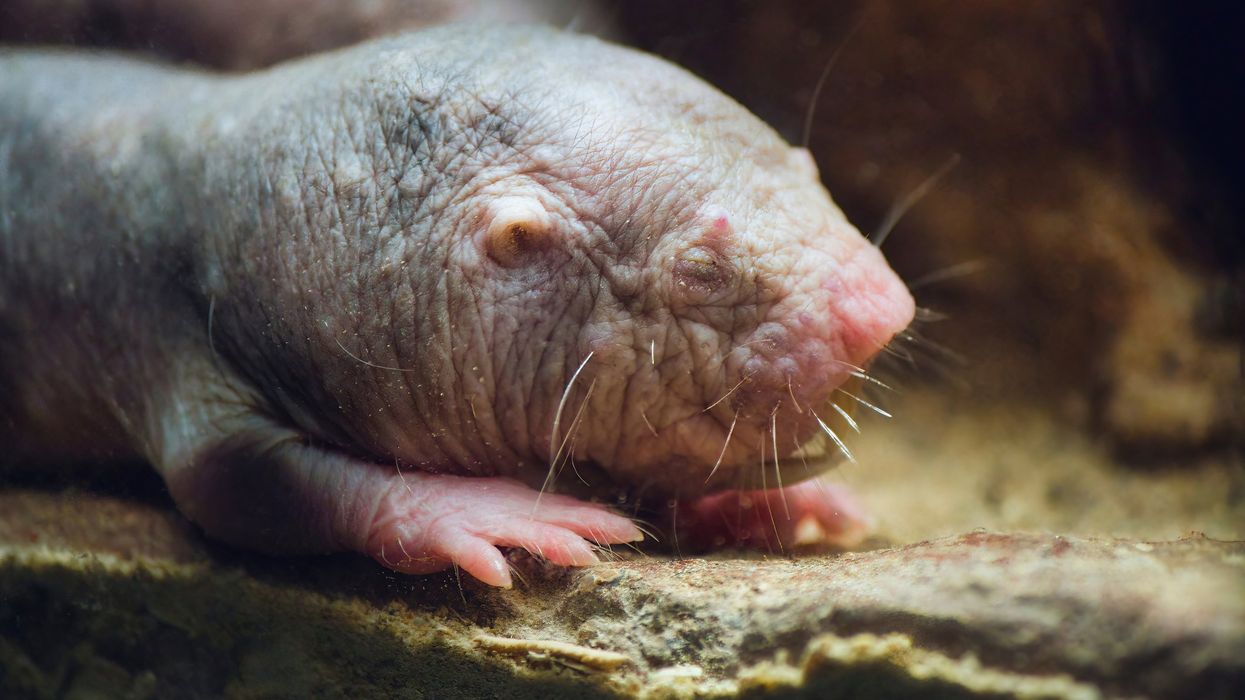Catherine Shuttleworth
Aug 27, 2023

Gene found in naked mole rat could be the secret to extending human life
iStock
Research suggests that naked mole rats could hold the secret to extending our lives.
The pink wrinkled skin rodents were part of a study examining a gene that could help humans live longer.
Naked mole rats possess hyaluronan synthase 2 gene (HAS2), and scientists managed to successfully transfer the gene to mice, and improve their lifespan. The gene is responsible for producing hyaluronic acid, a jelly-like substance that helps protect cells from damage.
The gene also plays a large role in connective tissue as well as wound healing, the lubrication of joints, and immune function.
Scientists determined naked mole rats were the perfect subject for the study as they produce more hyaluronic acid than other rodents. According to the University of Rochester, naked mole rats also have a lifespan around 10 times as long as similar-sized rodents, of up to 41 years. This is despite the fact that they should only live to be around six-years-old.
One factor in their elongated lifespan is that they rarely contract diseases such as cardiovascular disease, and arthritis, and have an impressive resistance to cancer.
Female naked mole rats are also fertile until they die, unlike most mammals which have a limited number of eggs and become less fertile with age.
The modified mice that received the transferred gene were noted having improved health and an approximate 4.4 per cent increase in the median lifespan. They were also more resistant to cancer.
Dr Vera Gorbunova, one of the study’s authors said: “Our study provides a proof of principle that unique longevity mechanisms that evolved in long-lived mammalian species can be exported to improve the lifespans of other mammals.”
High molecular weight hyaluronic acid (HMW-HA) suppress the regrowth of cancer cells and produces anti-inflammatory factors. This type of hyaluronic acid is what helps naked mole rats resist cancer. In comparison to mice and humans, naked mole rats have roughly ten times more HMW-HA in their bodies.
“It took us 10 years from the discovery of HMW-HA in the naked mole rat to showing that HMW-HA improves health in mice,” said Dr Gorbunova. “Our next goal is to transfer the benefit to humans.”
Dr Andrew Seluanov, another author of the study, spoke of the research findings saying: “We hope that our findings will provide the first, but not the last, example of how longevity adaptations from a long-lived species can be adapted to benefit human longevity and health.”
Sign up to our free Indy100 weekly newsletter
Have your say in our news democracy. Click the upvote icon at the top of the page to help raise this article through the indy100 rankings.
Top 100
The Conversation (0)













